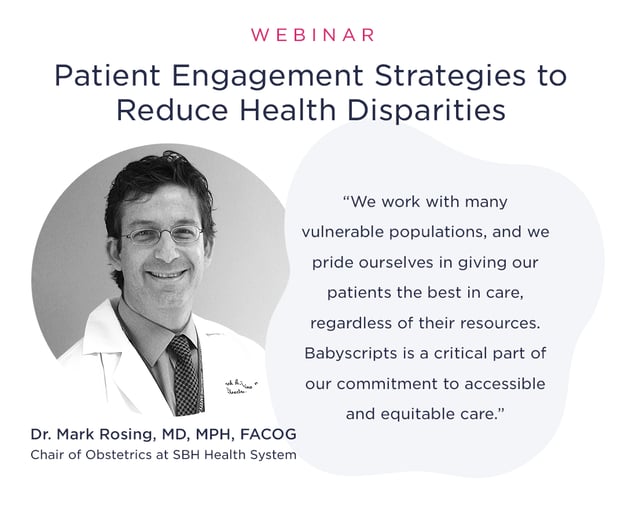A recent survey of 2000 adults by CharityRx found that a staggering 1 in 5 Americans consult TikTok for health advice before their doctor. (1)
An even greater number turn to Youtube (33%) and influencers (37%). The internet has completely changed the way that patients learn about and engage in their health, and not always for the better.
It’s a hotbed for misinformation, which can quickly go viral due to clickbait headlines or the notoriety of the influencer sharing it. Additionally, people often seek out or share information on the internet that confirms their previously held beliefs. One study found that false information reached a significant number of users on X (formerly Twitter) six times faster than the truth (2).
According to the data, about 70% of Americans have been exposed to medical misinformation in their lifetimes, and yet many people struggle to differentiate between health fact and fiction. Compelling personal opinions and anecdotes can be misrepresented as scientific fact. Coupled with confirmation bias, this can feed into growing questions and doubts while creating echo chambers.
Pregnant women are particularly susceptible to internet misinformation and social media influence. Women of reproductive age make up the largest audience of Facebook, Instagram, and TikTok in the United States, and represent a target rich audience for social influencers (3). As Gen Z moves into motherhood, these numbers are only increasing.
Pregnant women are also prone to anxiety. This is especially true for first-time mothers, who often turn to the internet seeking reassurance about their experiences being typical or normal. One survey found that 75% of expectant mothers searched the internet for health information related to their pregnancy, with many of them indicating they believed that the information they found was true and helpful (4).
Some also prefer to turn to the internet instead of their doctor for sensitive questions, whether from discomfort or lack of trust. One survey found that women and their partners are 70% more likely to turn to the internet, social media, and family and friends than their doctor when it comes to family planning questions like adoption or fertility treatment (5).
These patterns of behavior show no signs of changing. Over 80% of Americans between the ages of 18-49 use social media (6) and at least 95% of people in the same age group have a smartphone (7). Healthcare providers need to lean into these preferences. Rather than double down on outdated educational practices, healthcare providers need to meet patients where they are — on their smartphones. They need to offer dynamic, easily accessible channels for education or risk patients being caught up in misinformation, confusing at its best and life-threatening at worst.
It is imperative that care providers get out ahead of Dr. Google, and offer a reliable channel that will be a patient’s first stop for questions about health. When faced with a decision, people are inclined to anchoring bias — the tendency to weigh more heavily the first piece of information received in a decision-making. This becomes their reference point for further decisions and influences their perception of everything they receive afterward. To support a patient on their best pregnancy journey, it is critical that that piece of information comes from a provider-trusted resource.
That’s what Babyscripts provides. A program like Babyscripts is crucial in empowering patients to seek out reliable, clinically-verified health information that their healthcare providers can trust, in a medium that women of reproductive age are most likely to turn to.
Babyscripts is a powerful tool against misinformation.
The Babyscripts’ myJourney app comes loaded with a vast library of articles discussing topics ranging from safe medications during pregnancy to different stages of labor, and everything in between. These articles are based on research and agreed-upon medical science from reliable clinical resources like CDC and NIH. Health providers also have the ability to create their own customized content that can be specifically tailored towards patient needs and connect patients to important programs in their area. Together, the patient’s care team and the myJourney app create a powerful safety net that can help cover a patient even outside of their doctor’s office.
The myJourney app is just as easy to access on a smartphone as social media or a search engine, but is far more reliable. With notifications and reminders pushed out through text and email, the app preemptively addresses gestational-age specific questions and gets out ahead of anxiety-Googling. The functionality of weight tracking, and in some cases mental health and blood pressure monitoring, increases the likelihood that patients will come to Babyscripts first before seeking out other sources of information, as their provider-approved, single source for all things pregnancy.
Next week, Dr. Mark Rosing of SBH Bronx Health System is joining our webinar to discuss how his practice has made use of Babyscripts to reach patients in under-resourced areas and be their first point of reference for topical health questions. The Babyscripts team will also be speaking about new and updated functionalities to increase patient engagement with the program and ensure that patients are prioritizing approved educational resources for their pregnancy and postpartum care.
Join us on August 23 at 12PM ET to learn more!
Emily Morrison is a MPH student at Yale’s School of Public Health focusing on reproductive health. In her free time she loves to read, crochet, and spend time with her dog Winnie.
1. https://www.charityrx.com/blog/the-shifting-role-of-influence-and-authority-in-the-rx-drug-health-supplement-market/
2. Study: On Twitter, false news travels faster than true stories. (2018, March 8). MIT News | Massachusetts Institute of Technology. https://news.mit.edu/2018/study-twitter-false-news-travels-faster-true-stories-0308
3. https://www.statista.com/
4. Sayakhot, P., & Carolan-Olah, M. (2016). Internet use by pregnant women seeking pregnancy-related information: A systematic review. BMC Pregnancy and Childbirth, 16(1), 65. https://doi.org/10.1186/s12884-016-0856-5
5. https://www.femtechworld.co.uk/news/americans-trust-the-internet-more-than-a-doctor-when-making-family-building-decisions-survey-reveals/
6. Social Media Fact Sheet. (n.d.). Pew Research Center: Internet, Science & Tech. Retrieved August 7, 2023, from https://www.pewresearch.org/internet/fact-sheet/social-media/
7. Mobile Fact Sheet. (n.d.). Pew Research Center: Internet, Science & Tech. Retrieved August 7, 2023, from https://www.pewresearch.org/internet/fact-sheet/mobile/


Submit a comment